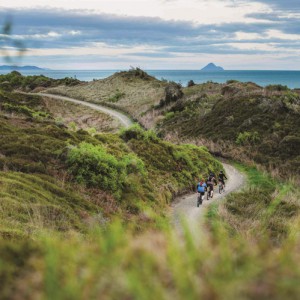In 2009, Prime Minister John Key announced a commitment to construct a national
cycleway through New Zealand arising from the Job Summit. The Ministry of Economic
Development then launched the New Zealand Cycle Trail project, Nga Haerenga, with a
limited contestable fund to support it. The main objectives of the project were to:
• Generate short and log term economic benefits – including employment
• Provide a high quality asset that offers a world class cycling experience and
enhances New Zealand’s competitiveness as a visitor destination
• Maximise complimentary benefits e.g. health, environment, commuters and events
sectors and Engage local communities
Opotiki District Council saw this project as an unexpected and one-off chance to create
jobs, a new recreational resource for the community, and a potential tourism opportunity.
But there was an enormous challenge to be overcome in just getting a local project off
the ground, which would make the difficulty of actually constructing the cycleway look
minor in comparison. The Motu Cycle Trail project was unplanned and unbudgeted, and
would require a complicated partnership to be formed between different organisations who
would need to work closely with each other, and make quick decisions. It would have to be
planned well in order to create a winning proposal for the contestable funding, and it would
need to find wide support in an impoverished community who had not asked for it, and
would now need to help pay for it. The challenge facing the project to move from an idea
into a reality was described whimsically by Project Leader Mike Houghton as ’could a fish
ride a bicycle’?
But against all odds the proposal was successful. A partnership was quickly formed with
Opotiki District Council as lead agency, responsible for liaison with MED. The other key
partner agencies and co-funders who committed to the project were Gisborne District
Council, the Department of Conservation and the Whakatohea Maori Trust Board. All
those concerned were excited by the vision to really do something special for the area,
being fully aware that this was a one-off opportunity where delays and time consuming
processes could potentially sink the project. The partners worked for three years on the
project which has constructed a 120 kilometre recreational cycle trail traversing Opotiki
and Gisborne Districts, and linking seven small rural communities.


